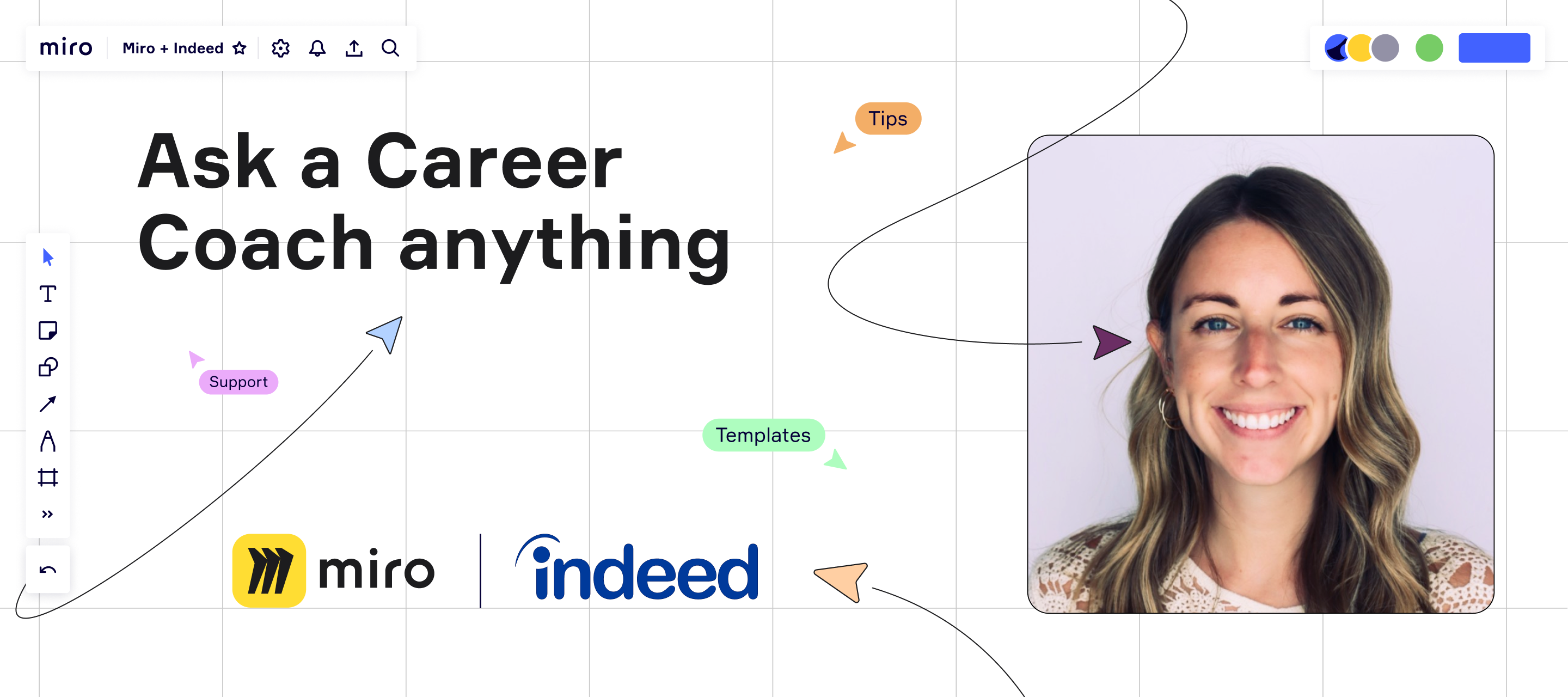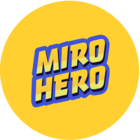Miro teamed up with Indeed, the leading job site in the world, to create dynamic resume and cover letter Miroverse templates packed with tips from the experts. Whether you’re embarking on your first ever job search; looking for your next opportunity following a layoff; or just making sure your documents are ready to go, these templates will help you feel confident in your pursuits.
💡Indeed Resume Template: This editable resume template includes thought exercises and insider tips to help take the guesswork out of crafting a resume from scratch.
💡Indeed Cover Letter Template: Loaded with industry-specific examples and a space for brainstorming, this cover letter template showcases ways to share accomplishments, experience, and goals with future employers.
Jamie Birt, expert Career Coach is here to answer all your career and job search related questions.
Ask Jamie about…
- Creating a resume that will get noticed
- Preparing for an upcoming interview
- Approaching salary negotiation
- Finding a company that aligns with your goals & values
Jamie will be here on 8/30 responding to all your questions LIVE under this post. Be sure to sign up for the event and check out the templates above and share with a friend.





